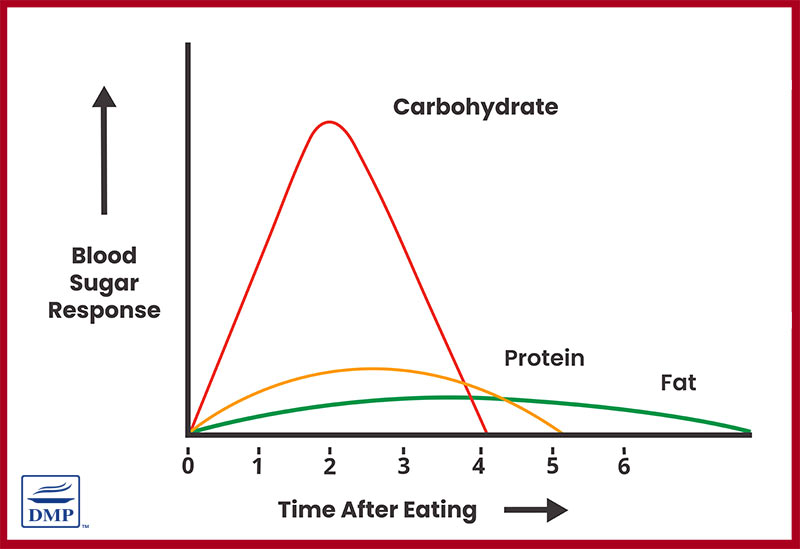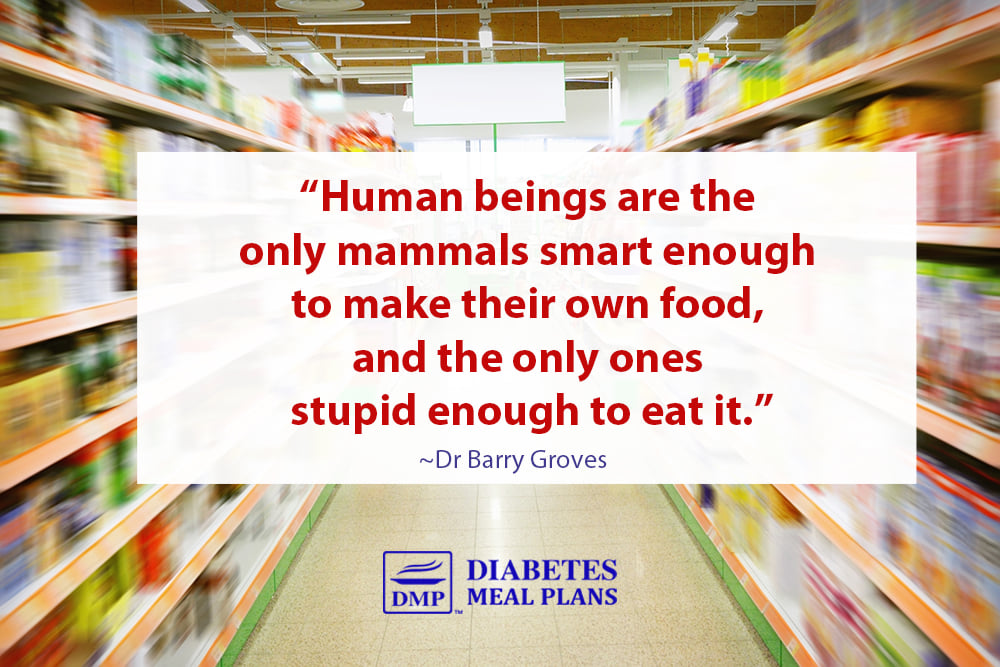Table of Contents[Hide][Show]
It’s Dr Jedha here and let me tell you straight up: the diet recommendations from Diabetes Australia, which are also shared through the National Diabetes Service Scheme (NDSS) do not provide the most up-to-date evidence that can help you achieve the best blood sugar and health results.
In fact, some of the recommendations provided by these organisations are just plain wrong and could be harmful.
If you’re struggling to get your blood sugar and HbA1c on track, listen up; as a doctor in T2Diabetes nutrition, I’ve spent over a decade researching the best diet recommendations for people with type 2 diabetes; and here at DMP we share proven recommended guidelines so you can focus on living the best life possible.
Let’s talk about the two most important things to focus on.
Carbohydrates are the most important nutrient
There are 3 macronutrients in our diet – protein, fat and carbohydrates.
Compared to protein and fat, carbohydrates have the biggest impact on blood sugar levels.

Diabetes Australia, the NDSS, and most dieititians and GPs, encourage people to eat by the Australian Healthy Eating Guidelines, which is a low fat high carbohydrate diet. Or you might hear you need to eat whole grains or low glycaemic index.
None of these recommendations are the type of diet to follow to achieve the best results.
In fact, the NDSS resources encourage women to eat 30-45 grams of carbs per meal; and men to eat 45-70 grams of carbs per meal – this is just crazy!
If you eat that many carbs you will really struggle to maintain healthy blood sugar levels.
The maximum amount of carbs we recommend you eat at any meal is 25 grams; and many people work to reduce that down even more, to say, 10 grams per meal.
By reducing the amount of carbohydrates you eat you will:
- get better results with your HbA1c
- lose weight effortlessly
- improve blood pressure and cholesterol
- decrease medication requirements
Trust me, I’ve been helping people with type 2 diabtes and prediabetes eat this way for the past decade, with amazing results!
In addition, the results of my clinical trial of the T2Diet Program prove that these guidelines work.
So here’s the thing: what we’ve found works well for our members and clients is to consume around 50 to 80 grams of total carbs per day, with a maximum of 100 grams per day. If you do this, you’ll be seeing major improvements in your blood sugar, HbA1c and overall health.
If you need more help understanding carbs, start with this Guide to Healthy Carbs.
You could also consider taking the T2Diet Program.
Hear what Dean has to say:
Eat Nutrient Dense Whole Foods
The second important factor is to focus on reducing or eliminating processed foods and eat nutrient dense whole foods. These are foods high in nutrients that are minimally processed or not processed at all.

Nutrient dense whole foods are foods like lower carb fruits, lots of non starchy vegetables, fresh meats, fish and seafood, eggs, nuts and seeds.
See our recommended food list here.
Nutrient dense whole foods provide your body with premium fuel that will optimise your blood sugar, your metabolism and your overall health.
And just a little tip – when you’re at the supermarket, you’ll typically find these nutrient-dense whole foods along the perimeter of the store. That’s where the fresh produce, meats, dairy, and fresh deli items usually live. Shop around the edges of the store and avoid the heavily processed foods in the middle aisles, as much as possible.
Conclusion
Unfortunately, diabetes organisations and GPs are often behind the times, sharing information that may not be as helpful as it seems.
When it comes to your diabetes diet, choose a trusted source for nutrition information, such as what we provide here at DMP. That way you can follow proven guidelines so you can achieve and maintain the best results possible.
Start with the two tips above: 1) know your carbs and reduce the amount you eat, and; 2) focus on eating nutrient dense whole foods.
If you can do that, you’ll be well on your way to improved overall health!

